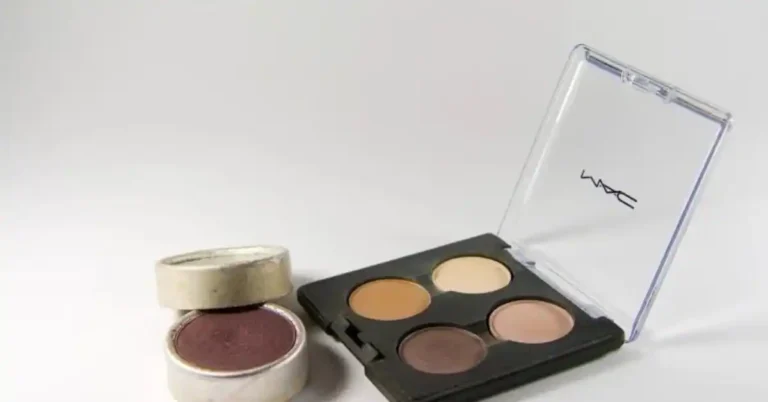Nutrition Tips for Healthy and Glowing Skin
Introduction
Achieving radiant, glowing skin isn’t just about slathering on the latest skincare products or undergoing expensive treatments. Your diet plays a crucial role in nurturing your skin from within. By incorporating nutrient-rich foods into your daily meals, you can enhance your skin’s health and unlock its natural luminosity. In this article, we’ll explore 10 nutrition tips that can help you achieve that coveted glow.
Hydrate with Water
Water is the elixir of life, and its importance for overall health cannot be overstated. When it comes to skincare, hydration is key, and water plays a crucial role in maintaining the health and appearance of your skin.
Let’s delve deeper into why hydration with water is the cornerstone of achieving radiant, glowing skin.
Why Water Matters
- Skin Hydration: Our skin cells, like every other cell in the body, are made up of water. Adequate hydration ensures that your skin cells are plump and well-hydrated, resulting in a smoother, more supple complexion.
- Toxin Removal: Water helps flush toxins and impurities from the body, including those that can contribute to skin problems like acne and dullness. Proper hydration supports the body’s natural detoxification processes, leading to clearer, healthier skin.
- Improved Circulation: Staying hydrated promotes better blood circulation, which means that oxygen and nutrients are delivered more efficiently to the skin cells. This increased circulation can give your skin a radiant, healthy glow.
- Reduced Wrinkles and Fine Lines: Dehydrated skin is more prone to wrinkles and fine lines, as it lacks the moisture needed to maintain its elasticity. By keeping your skin well-hydrated, you can help minimize the appearance of premature aging signs and maintain a youthful complexion.
How Much Water Do You Need?
The commonly recommended guideline is to drink at least eight 8-ounce glasses of water per day, known as the 8×8 rule. However, individual water needs can vary based on factors such as age, weight, activity level, and climate. It’s essential to listen to your body and drink water whenever you feel thirsty, as thirst is a signal that your body needs hydration.
Tips for Staying Hydrated
- Carry a Water Bottle: Keep a reusable water bottle with you throughout the day to make it easier to sip water regularly, whether you’re at work, running errands, or exercising.
- Infuse with Flavor: If plain water seems dull, try infusing it with fresh fruits, herbs, or cucumber slices for a refreshing twist. This can make hydration more enjoyable and encourage you to drink more water.
- Set Reminders: Use smartphone apps or alarms to remind yourself to drink water at regular intervals, especially if you tend to forget to hydrate during busy days.
- Monitor Urine Color: Pay attention to the color of your urine – pale yellow or straw-colored urine indicates adequate hydration, while darker urine may signal dehydration.
- Hydrate Before and After Exercise: Drink water before, during, and after exercise to replenish fluids lost through sweat and prevent dehydration.
Load Up on Fruits and Vegetables
When it comes to achieving radiant, glowing skin, your plate can be just as important as your skincare routine. Fruits and vegetables, with their abundance of vitamins, minerals, and antioxidants, are essential for nourishing your skin from the inside out.
Let’s explore why loading up on fruits and vegetables is a must for skin that radiates with health and vitality.
The Power of Phytonutrients
Fruits and vegetables are rich in phytonutrients, natural compounds that provide a myriad of health benefits, including promoting radiant skin. These phytonutrients act as antioxidants, protecting the skin from oxidative stress caused by environmental factors such as pollution and UV radiation.
Vitamins and Minerals for Skin Health
Fruits and vegetables are packed with vitamins and minerals that are vital for maintaining skin health. Vitamin C, found in citrus fruits, berries, and leafy greens, supports collagen production, helping to keep the skin firm and youthful. Vitamin A, abundant in carrots, sweet potatoes, and spinach, promotes cell turnover, resulting in smoother, more radiant skin.
Hydration and Fiber Content
Many fruits and vegetables have high water content, which helps keep your skin hydrated and plump. Additionally, the fiber found in fruits and vegetables aids in digestion and promotes gut health, which is linked to skin health. A well-hydrated body and a healthy gut microbiome are both essential for achieving that coveted glow.
Variety is Key
To reap the full benefits of fruits and vegetables, aim for a diverse array of colors and types. Different fruits and vegetables contain different combinations of nutrients, so incorporating a variety into your diet ensures that you’re getting a wide range of skin-loving vitamins and minerals.
Easy Ways to Incorporate More Fruits and Vegetables
- Start Your Day Right: Add berries, bananas, or spinach to your morning smoothie for a nutrient-packed breakfast that supports glowing skin.
- Snack Smart: Instead of reaching for processed snacks, opt for fresh fruits or crunchy vegetables with hummus or nut butter for a satisfying and skin-friendly snack.
- Bulk Up Your Meals: Incorporate plenty of vegetables into your meals by adding them to stir-fries, salads, soups, and pasta dishes. The more colorful your plate, the more nutrients you’ll be feeding your skin.
- Explore New Flavors: Experiment with different fruits and vegetables that you may not have tried before. Visit your local farmers’ market to discover seasonal produce and add excitement to your meals.
Focus on Omega-3 Fatty Acids

When it comes to skincare, healthy fats are not to be overlooked, and omega-3 fatty acids stand out as a superstar for achieving radiant, glowing skin. These essential fatty acids play a crucial role in maintaining skin health from the inside out.
Let’s delve deeper into why focusing on omega-3 fatty acids can be a game-changer for your skin.
The Role of Omega-3 Fatty Acids
Omega-3 fatty acids are polyunsaturated fats that are known for their anti-inflammatory properties. Inflammation is a common underlying factor in various skin conditions, including acne, eczema, and psoriasis. By incorporating omega-3 fatty acids into your diet, you can help reduce inflammation in the skin, leading to a clearer, more radiant complexion.
Benefits for Skin Health
- Moisture Retention: Omega-3 fatty acids help maintain the skin’s natural lipid barrier, which is essential for retaining moisture and preventing dryness. Well-hydrated skin appears plump, smooth, and luminous.
- Reduced Acne: Inflammatory acne, characterized by redness and swelling, can benefit from the anti-inflammatory effects of omega-3 fatty acids. By calming inflammation, omega-3s may help alleviate symptoms of acne and promote clearer skin.
- Improved Skin Texture: Omega-3 fatty acids support skin cell turnover and regeneration, resulting in improved texture and tone. Regular consumption of omega-3-rich foods can contribute to smoother, more even-looking skin.
- Protection from UV Damage: Some research suggests that omega-3 fatty acids may offer protection against UV-induced skin damage and premature aging. While not a replacement for sunscreen, incorporating omega-3s into your diet can complement sun protection efforts for healthier skin.
Best Sources of Omega-3 Fatty Acids
- Fatty Fish: Salmon, mackerel, sardines, and trout are excellent sources of EPA (eicosapentaenoic acid) and DHA (docosahexaenoic acid), two types of omega-3 fatty acids with potent skin benefits.
- Flaxseeds: Ground flaxseeds are a plant-based source of alpha-linolenic acid (ALA), a type of omega-3 fatty acid. Sprinkle ground flaxseeds on yogurt, oatmeal, or salads for a nutritional boost.
- Chia Seeds: Like flaxseeds, chia seeds are rich in ALA and can be added to smoothies, puddings, or baked goods to increase your omega-3 intake.
- Walnuts: Walnuts are another plant-based source of omega-3 fatty acids, making them a convenient snack for promoting skin health.
Incorporating Omega-3s into Your Diet
- Enjoy Fatty Fish Regularly: Aim to include fatty fish in your diet at least twice a week to ensure an adequate intake of EPA and DHA.
- Add Flaxseeds or Chia Seeds to Meals: Sprinkle ground flaxseeds or chia seeds on cereals, salads, or yogurt to boost your omega-3 intake.
- Snack on Walnuts: Keep a stash of walnuts on hand for a nutritious snack that supports glowing skin & health.
- Consider Supplements: If you struggle to consume enough omega-3-rich foods, consider taking a fish oil or algae oil supplement under the guidance of a healthcare professional.
Don’t Skimp on Healthy Fats
When it comes to skincare, fat isn’t something to fear – especially when it comes from healthy sources. Healthy fats play a crucial role in maintaining skin health and achieving that coveted radiant glow. By incorporating these fats into your diet, you can nourish your skin from within and unlock its natural luminosity.
Let’s explore why you shouldn’t skimp on healthy fats and how they can benefit your skin.
The Importance of Healthy Fats for Skin Health
- Moisture and Hydration: Healthy fats help maintain the skin’s natural lipid barrier, which is essential for retaining moisture. Well-hydrated skin appears plump, smooth, and radiant, while dry skin can appear dull and lackluster.
- Skin Elasticity: Fats are crucial for maintaining the flexibility and elasticity of the skin. A deficiency in essential fatty acids can lead to dry, flaky skin and an increased risk of wrinkles and fine lines.
- Anti-Inflammatory Properties: Omega-3 and omega-6 fatty acids have anti-inflammatory properties that can help calm inflammation in the skin. Inflammation is a common underlying factor in various skin conditions, including acne, eczema, and psoriasis.
- Nutrient Absorption: Certain vitamins and antioxidants, such as vitamins A, D, E, and K, are fat-soluble, meaning they require fat for proper absorption. By consuming healthy fats alongside these nutrients, you ensure that your body can make the most of their skin-boosting benefits.
Sources of Healthy Fats for Glowing Skin
- Avocado: Rich in monounsaturated fats, avocados are an excellent source of nourishment for the glowing skin. They also contain vitamin E, a powerful antioxidant that helps protect the skin from oxidative damage.
- Olive Oil: Extra virgin olive oil is packed with monounsaturated fats and antioxidants, making it a great choice for both cooking and drizzling over salads. Its anti-inflammatory properties can benefit the skin by reducing redness and irritation.
- Nuts and Seeds: Almonds, walnuts, chia seeds, and flaxseeds are all rich in healthy fats, including omega-3 fatty acids. Sprinkle them on yogurt, salads, or oatmeal for a crunchy and skin-nourishing boost.
- Fatty Fish: Salmon, mackerel, and sardines are loaded with omega-3 fatty acids, which are essential for maintaining glowing skin & health. Aim to incorporate fatty fish into your diet regularly for a radiant complexion.
- Coconut Oil: While high in saturated fat, coconut oil contains medium-chain fatty acids that have moisturizing and anti-inflammatory properties. Use it as a natural moisturizer or add it to smoothies and cooking in moderation.
Incorporating Healthy Fats into Your Diet
- Cook with Olive Oil: Use extra virgin olive oil for sautéing, roasting, and drizzling over vegetables to add flavor and healthy fats to your meals.
- Snack on Nuts and Seeds: Keep a stash of nuts and seeds on hand for a convenient and skin-friendly snack option.
- Make Avocado a Staple: Add avocado to sandwiches, salads, and smoothies for a creamy and nutritious boost.
- Enjoy Fatty Fish Regularly: Incorporate fatty fish into your diet at least twice a week to ensure an adequate intake of omega-3 fatty acids.
Cut Back on Sugar and Processed Foods
In the pursuit of radiant, glowing skin, your diet plays a significant role. While indulging in sweet treats and processed snacks might be tempting, these foods can wreak havoc on your skin’s health. Cutting back on sugar and processed foods is essential for maintaining clear, luminous skin.
These dietary changes are crucial for achieving the complexion of your dreams.
The Impact of Sugar and Processed Foods on Skin
- Inflammation: Sugar and processed foods are known to trigger inflammation in the body, including the skin. Inflammation can exacerbate skin conditions such as acne, rosacea, and eczema, leading to redness, swelling, and irritation.
- Acne Formation: High-glycemic foods, such as sugary snacks and refined carbohydrates, can spike blood sugar levels, leading to increased insulin production. Elevated insulin levels can stimulate oil production in the skin and clog pores, contributing to acne breakouts.
- Premature Aging: Consumption of excess sugar can lead to a process called glycation, where sugar molecules bind to collagen and elastin fibers in the glowing skin, causing them to become stiff and less elastic. This can result in the formation of wrinkles, fine lines, and sagging skin, prematurely aging your complexion.
- Dehydration: Sugary and processed foods often lack essential nutrients and water content, leading to dehydration. Dehydrated skin appears dull, dry, and lackluster, diminishing its natural glow and vitality.
Tips for Reducing Sugar and Processed Foods
- Read Labels: Be mindful of the ingredients listed on packaged foods. Opt for products with minimal added sugars, artificial additives, and preservatives.
- Choose Whole Foods: Focus on incorporating whole, unprocessed foods into your diet, such as fruits, vegetables, whole grains, lean proteins, and healthy fats. These nutrient-rich foods nourish your skin from within and support overall health.
- Limit Sugary Drinks: Reduce your intake of sugary beverages such as soda, fruit juices, and sweetened teas. Opt for water, herbal teas, or infused water with fresh fruits and herbs for hydration.
- Practice Mindful Eating: Pay attention to hunger cues and practice mindful eating to avoid mindless snacking on sugary and processed foods. Choose nutrient-dense snacks such as fresh fruit, nuts, or Greek yogurt instead.
- Experiment with Natural Sweeteners: Explore alternatives to refined sugar, such as honey, maple syrup, or stevia, in moderation. These natural sweeteners can satisfy your sweet tooth without causing drastic blood sugar spikes.
The Benefits of Cutting Back
- Clearer Skin: By reducing your intake of sugar and processed foods, you can minimize inflammation and oil production in the glowing skin, leading to fewer breakouts and a clearer complexion.
- Youthful Appearance: Limiting sugar intake helps prevent glycation and the formation of wrinkles, fine lines, and sagging skin, promoting a more youthful appearance.
- Hydrated, Radiant Skin: Whole, nutrient-rich foods provide essential vitamins, minerals, and hydration, resulting in a glowing complexion that reflects good health and vitality.






